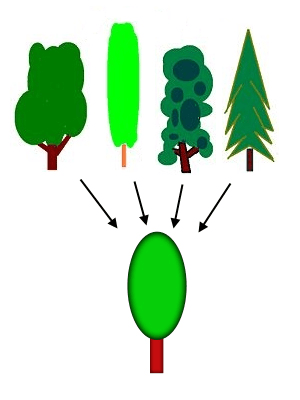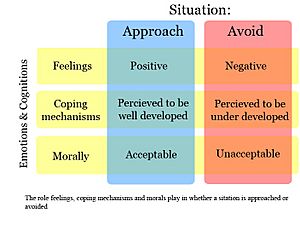Cognition facts for kids

Cognition is "the mental action or process of acquiring knowledge and understanding through thought, experience, and the senses." It encompasses processes such as knowledge, attention, memory and working memory, judgment and evaluation, reasoning and "computation", problem solving and decision making, comprehension and production of language, etc. Human cognition is conscious and unconscious, concrete or abstract, as well as intuitive (like knowledge of a language) and conceptual (like a model of a language). Cognitive processes use existing knowledge and generate new knowledge.
The processes are analyzed from different perspectives within different contexts, notably in the fields of linguistics, anesthesia, neuroscience, psychiatry, psychology, education, philosophy, anthropology, biology, systemics, logic, and computer science.
Within psychology and philosophy, the concept of cognition is closely related to abstract concepts such as mind and intelligence. It encompasses the mental functions, mental processes (thoughts), and states of intelligent entities (humans, collaborative groups, human organizations, highly autonomous machines, and artificial intelligences). Cognition can in some specific and abstract sense also be artificial.
Contents
Origins
Cognition is a word that dates back to the 15th century, when it meant "thinking and awareness". Attention to the cognitive process came about more than eighteen centuries ago, beginning with Aristotle and his interest in the inner workings of the mind and how they affect the human experience. Aristotle focused on cognitive areas pertaining to memory, perception, and mental imagery.
Psychology
The sort of mental processes described as cognitive are largely influenced by research, likely starting with Thomas Aquinas, who divided the study of behavior into two broad categories: cognitive (how we know the world), and affective (how we understand the world via feelings and emotions).
Images for kids
-
A cognitive model, as illustrated by Robert Fludd (1619)
See also
 In Spanish: Cognición para niños
In Spanish: Cognición para niños



